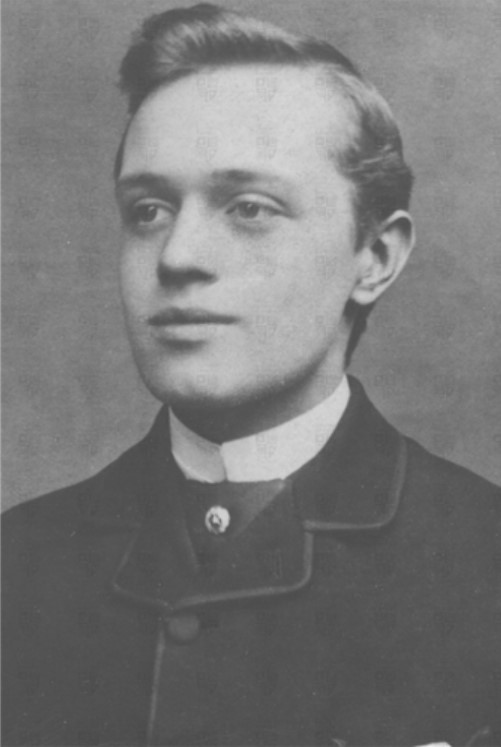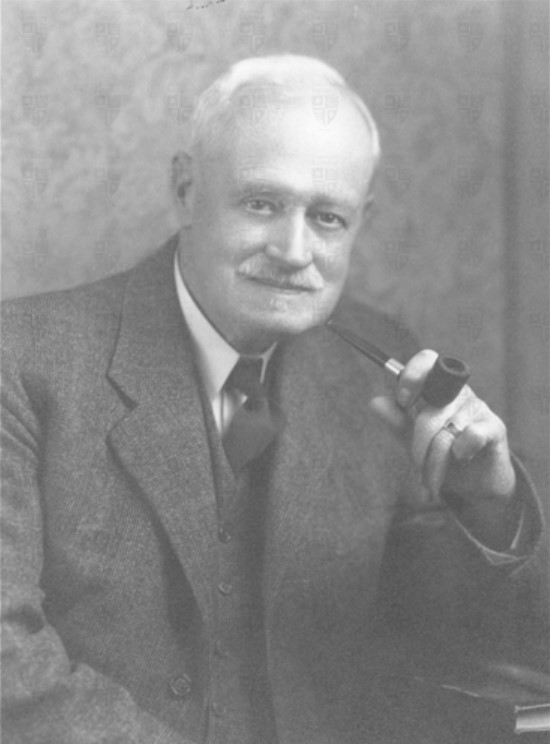Charles Edward Hope was an important figure in Fort Langley during the period of the Issei immigrating the Canada. He was influential in the political world of British Columbia and Canada. He was part of different associations and boards such as the school board, the Farmer’s Institute[43] and was one of the originators of the White Canada Association.

Charles Edward Hope in the 1890’s.
Langley Centennial Museum Photo #0283
Charles Edward Hope was born in 1864 and lived in Bradford, Yorkshire, England[44] and came to Canada around 1888/89.[45] Once in British Columbia, Hope had many professions. He was an architect, land surveyor, engineer, worked in real estate and owned a mine. Through his many professions Hope made a sizeable living and name for himself. With his money he bought up 540 acres of land throughout the Fraser Valley and began to get involved in the agricultural industry.[46]
The Japanese Canadians were quickly buying up farmland in the Fraser Valley and slowly gaining ground within the agricultural industry. With his new involvement in the industry, Hope began to identify with the Oriental Problem, and he became one of the most outspoken voices in the Fraser Valley on the issue. Hope was a member of the Farmers Institute and at their meetings he would continually bring up the Oriental problem. When the Japanese Canadians asked the institute if they could become members of the Langley Farmer’s Institute, Hope was on of the voices that said they should have to apply to the general institute before the Issei’s membership could be considered.[47] Hope also asked the Institute to consider the idea of stopping Orientals from purchasing and leasing land because it was an encroachment on the Euro-Canadians farming in the Fraser Valley.[48] The Institute then agreed to ask the government to seek legislative action to prevent Japanese and Chinese purchasing and leasing of land.[49]
The Oriental Problem that the Farmer’s Institute was dealing with led to a conference held in Vancouver in November 1929[50] where the Farmers Institute, representatives from city and rural councils, retail merchants’ associations and many other groups met to discuss the problem.[51] From this conference the White Canada Association (WCA) was created and its goal was to “try and stem the tide of Orientalism which [was] gradually but surely over-running the whole province.”[52] Upon the creation of the WCA, Hope offered his Vancouver Real Estate office as the association’s headquarters and mailing address.[53] The WCA felt that through their creation and actions that they could help put a stop to the Oriental Problem in the Fraser Valley. Hope and the WCA continued to write articles and speak out against the Japanese Canadians and the threat they posed to the Fraser Valley’s Euro-Canadian farmers. Hope believed that the “silent penetration” of the industry mean fewer opportunities for Euro-Canadians.[54] For these reasons Hope continued to speak out against Japanese Canadians until his death in 1949.
While Hope left behind a great legacy in Fort Langley through the good works he did for the community through his numerous professions, his work with the WCA leaves a dark mark in both the Fraser Valley and his own reputation. Hope fully believed in a European Province and Canada. He thought that he was helping his fellow Canadians and working to save them from the terrible threat he perceived the Japanese Canadians to be. However, all Hope and the WCA were doing was discriminatory and stirring up hate towards Japanese Canadians.

Charles Edward Hope in the 1940’s.
Langley Centennial Museum Photo #5496